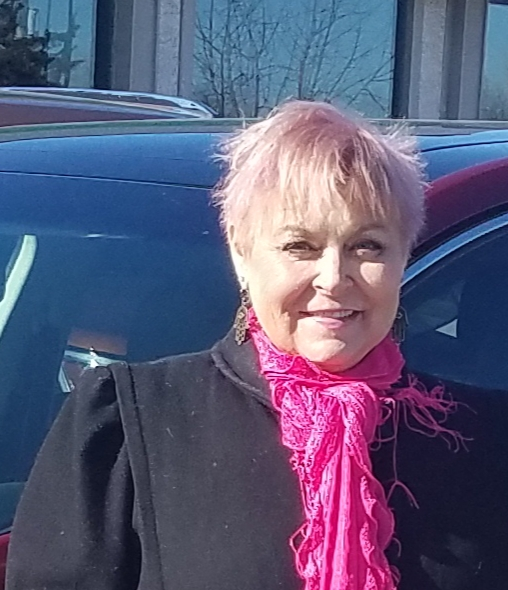
Renee D., KS
I was experiencing symptoms that neither my doctors nor I would associate with lung cancer.
I was actually on my way to a hair appointment and had stopped at the hospital to have copies of a recent MRI forwarded. I had experienced neck pain and was being treated for that. As I left the hospital parking lot, I backed into a small pole and immediately felt my left arm snap in two. The parking valet and the emergency staff helped me to the ER where they began taking X Rays of my neck. Thank God my husband arrived before the doctors came in to give me the diagnosis. It wasn't my neck. I had a tumor in my arm which had spread from the tumor in my right lung. I was diagnosed with Stage 4 non-small cell lung cancer.
My life changed drastically that day. I felt as though I had been given a death sentence. Further CTs and MRIs found tumors in my brain and on my adrenal gland. However, I began an intensive round of meetings with oncologists and other physicians who had some encouraging things to say. First, I had to have surgery to repair my arm. Then I began a series of targeted radiation.
My oncologist insisted on testing for genetic markers. I believe that this is what led to my current remission. A new immunological drug, Keytruda, had just been approved for the treatment of NSCLC. My genetic testing indicated that I was an excellent candidate for this treatment. Now, instead of being told that I might have 18 months to live, I am in remission after 8 months of treatment.
Now my life has changed drastically for the better. My eating and exercise habits have improved. Instead of focusing on the negatives of a lung cancer diagnosis, I focus on the positives of lifestyle changes and continual improvements in treatments. As a practicing psychologist, I feel even more able to help my clients find the positives in their own lives. If I had received this diagnosis even 5 years ago, my prognosis would have been bleak. As it is, with new treatments, I expect great things. I may not live to 100, but even my oh-so-cautious and wonderful oncologist agrees that my chances for a much longer lifespan have significantly improved with immunotherapy.
I also need to address the stigma associated with lung cancer. When I tell people my diagnosis, their first question is often, "Were you a smoker?" Well, yes, I was what my friends call a "social smoker." At parties and such, I smoked a few cigarettes with friends. I smoked my last cigarette over 20 years ago and my oncologist doubts that my "social smoking" contributed to my cancer. More likely, genetics, the long history of cancer in my family, led to this disease. As someone once said, "if you have breasts, you can get breast cancer; if you have kidneys, you can get kidney cancer…" Well, we all have lungs and lung cancer happens to be the leading cause of cancer deaths regardless of smoking history.
I am grateful for the great team of nurses and doctors I work with at Adventist Hospital, an MD Anderson facility, and at University of Kansas Medical Center. I am grateful to the researchers who continue advance lung cancer treatment. And I am grateful to the funders who help the American Lung Association continue in their quest for better and improved research and treatment.
One last thing…a dear friend of mine read about "Saved by the Scan." Based on my diagnosis, she decided to be scanned and was declared cancer free. But her scan revealed spots on her lungs, which will continue to be monitored. This early testing may ultimately prove to be a lifesaver.
The importance of new research, treatment and the work of the American Lung Association is paramount in helping more people overcome this dreadful disease. We have more treatment options and hope than ever before. Remember, I had no symptoms and no inkling of any lung disease. In many ways, I was given a second chance because of a fluke accident. If I can work to help increase research and preventative measures, I believe that I will have fulfilled one of the major purposes of my life. Not everyone is given this chance.
A Breath of Fresh Air in Your Inbox
Join over 700,000 people who receive the latest news about lung health, including research, lung disease, air quality, quitting tobacco, inspiring stories and more!
Thank You!
You will now receive email updates from the American Lung Association.

